ESTATE PLANNING LAWYERS IN OKLAHOMA
WE TAKE YOUR FUTURE SERIOUSLY
Estate planning at Gunkel Law Group is a process that involves counsel from our attorneys, who dedicate time understanding your goals and concerns, your assets and how they are owned, and your family structure. When necessary, we’ll work together with your accountant, financial planner, life insurance advisor, banker, and broker to get your assets coordinated appropriately.
With advanced knowledge of Oklahoma laws and estate taxes, we’ll ensure your family’s financial future is protected, tax burdens are eased, and all assets and essential documents are securely in place.
ESTATE PLANNING SERVICES
ESTATE ADMINISTRATION
CREATION OF WILLS & TRUSTS
MANAGING OKLAHOMA ESTATE TAXES
POWERS OF ATTORNEY
PROPERTY TRANSFERS
HEALTH CARE PROXIES AND ADVANCED DIRECTIVES
COUNSEL FOR EXECUTORS AND TRUSTEES
CREATING A WILL
A will provides for the distribution of certain property owned by you at the time of your death, and generally you may dispose of such property in any manner you choose. They can be of various degrees of complexity and utilized to achieve a wide range of family and tax objectives.
If you die without a will, Oklahoma state law determines how your estate will be divided, and it may not be what you would have chosen. These determinations are the government’s attempt to distribute a deceased person’s assets in a sensible way, to their closest family members. However, this “one size fits all” method does not allow you to choose what will work best for your family’s unique needs, and that’s exactly where Gunkel Law Group’s expertise comes in.
FREQUENTLY ASKED QUESTIONS
-
Trusts are legal arrangements that can provide incredible flexibility for the ownership of certain assets, thereby enabling you and your heirs to achieve a number of significant personal goals that cannot be achieved otherwise. The term trust describes the holding of property by a trustee, which may be one or more persons or a corporate trust company or bank, in accordance with the provisions of a contract, the written trust instrument, for the benefit of one or more persons called beneficiaries. The trustee is the legal owner of the trust property, and the beneficiaries are the equitable owners of the trust property. A person may be both a trustee and a beneficiary of the same trust.
-
A will does not avoid probate. By definition, a probate is the court process to prove a will.
A will does not govern the transfer of certain types of assets, called non-probate property, which by operation of law (title) or contract (such as a beneficiary designation) pass to someone other than your estate on your death. For example, real estate and other assets owned with rights of survivorship pass automatically to the surviving owner. Likewise, an IRA or insurance policy payable to a named beneficiary passes to that named beneficiary regardless of your will.
-
Wills must be signed in the presence of witnesses and certain formalities must be followed or the will may be invalid. In many states, a will that is formally executed in front of witnesses with all signatures notarized is deemed to be “self-proving” and may be admitted to probate without the testimony of witnesses or other additional proof. Even if a will is ultimately held to be valid in spite of errors in execution, addressing such a challenge may be costly and difficult. A potential challenge is best addressed by executing the will properly in the first instance. A later amendment to a will is called a codicil and must be signed with the same formalities. Be cautious in using a codicil because, if there are ambiguities between its provisions and the prior will it amends, problems can ensue. In some states, the will may refer to a memorandum that distributes certain items of tangible personal property, such as furniture, jewelry, and automobiles, which may be changed from time to time without the formalities of a will. Even if such a memorandum is permitted in your state, proceed with caution. This type of separate document can create potential confusion or challenges if it is inconsistent with the terms of the will or prepared in a haphazard manner.
-
If you own property with another person as joint tenants with right of survivorship, that is, not as tenants in common, the property will pass directly to the remaining joint tenant upon your death and will not be a part of your probate estate governed by your will (or the state’s laws of intestacy if you have no will). It is important to note that whether property is part of your probate estate has nothing to do with whether property is part of your taxable estate for estate tax purposes.
-
If you own life insurance on your own life, you may either:
(a) designate one or more beneficiaries to receive the insurance proceeds upon your death, or (b) make the proceeds payable to your probate estate or to a trust created by you during your lifetime or by your will.
If insurance proceeds are payable to your estate, they will be distributed as part of your general estate in accordance with the terms of your will or, if you die without a will, according to the applicable state laws of intestate succession. If the proceeds are payable to a trust, they will be held and distributed in the same manner as the other trust assets and may be protected from creditors' claims.



